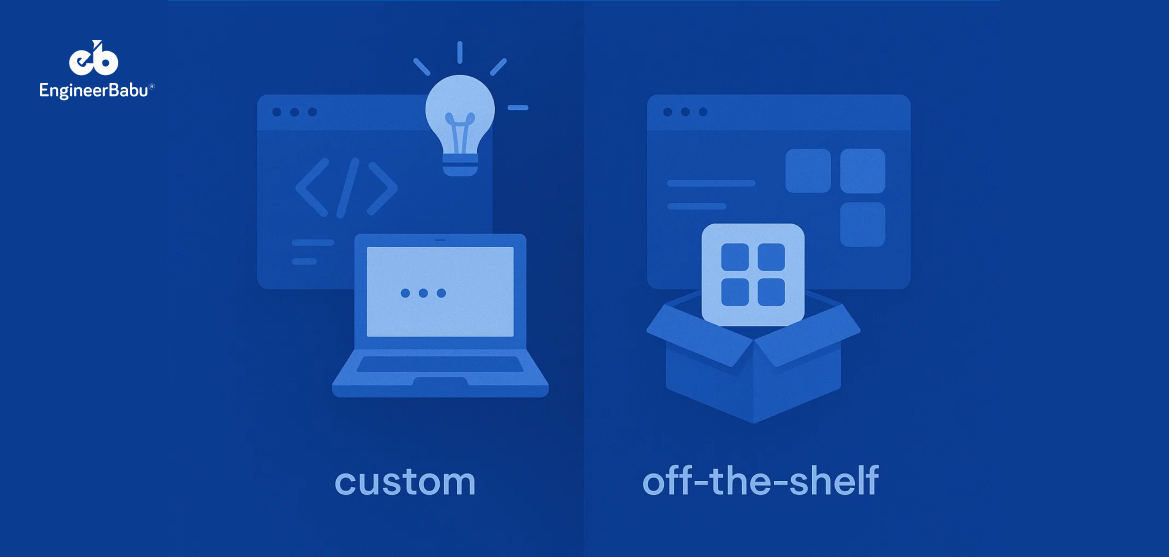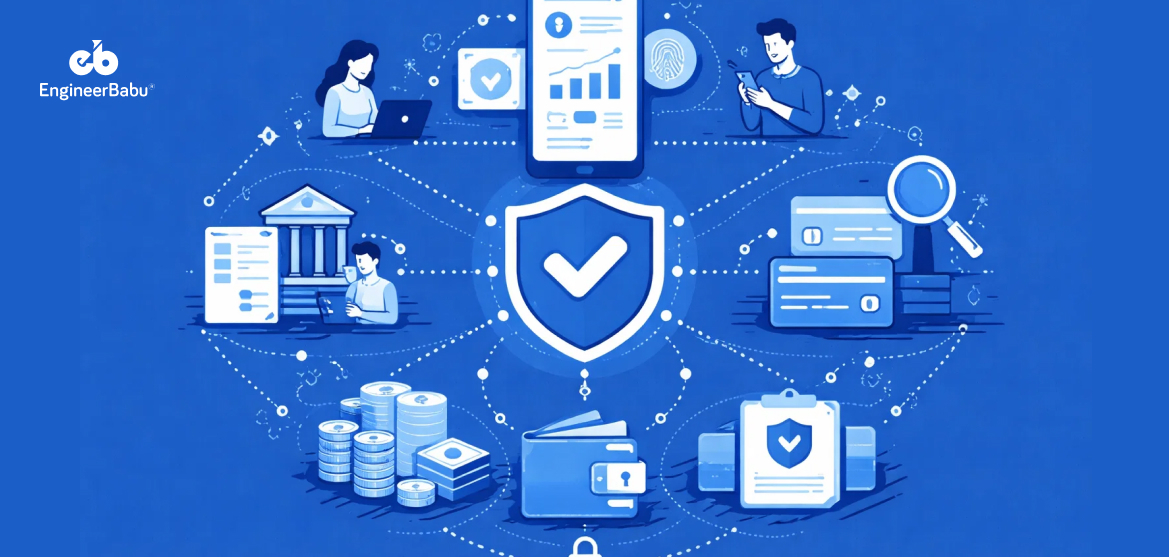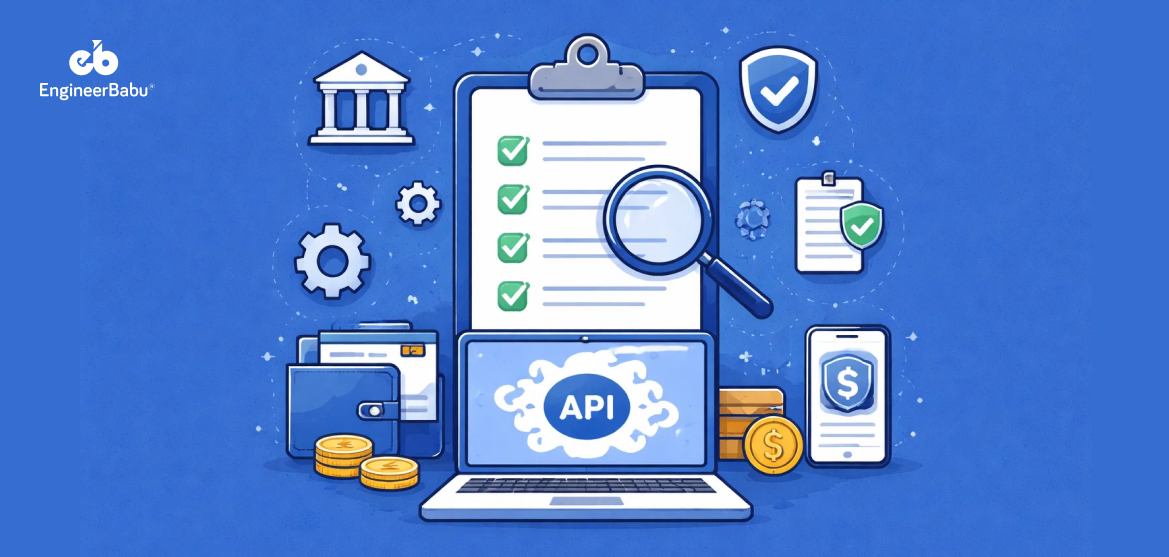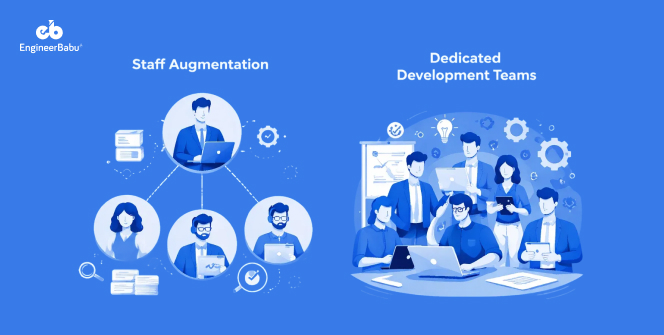Businesses today rely heavily on software applications to streamline operations, enhance customer experiences, and scale efficiently.
But when choosing software, companies face a crucial decision: Should they invest in a custom-built application tailored to their needs or opt for an off-the-shelf solution?
Off-the-shelf software is often seen as a quick and cost-effective solution, offering pre-built features that can be deployed instantly. However, these solutions are designed for mass-market use, meaning they may not fully align with unique business requirements.
Conversely, custom-built applications are specifically developed to fit an organization’s workflows, goals, and future growth plans. They offer long-term benefits that off-the-shelf software cannot match.
This blog will break down seven key differences between custom-built apps and off-the-shelf solutions, helping businesses make an informed choice based on their needs, budget, and scalability goals.
7 Reasons to Use Custom-Built Apps vs. Off-the-Shelf Solutions
Business Fit & Customization
One of the biggest differences between custom-built apps and off-the-shelf solutions is how well they align with business operations. Every company has unique workflows, processes, and customer needs, and software should support—not limit—those requirements.
Custom-Built Apps: Designed for Your Business
A custom-built application is developed specifically for your business, ensuring that every feature, function, and user interface is tailored to your exact needs.
Whether it’s automating specific tasks, integrating with unique workflows, or providing a personalized user experience, custom apps adapt to your business rather than forcing you to adjust to pre-defined software limitations.
For example, an e-commerce company may need an AI-driven recommendation engine that aligns with its unique sales strategy, something an off-the-shelf solution might not offer. A custom-built app can incorporate such features, ensuring higher customer engagement and conversions.
Off-the-Shelf Solutions: One-Size-Fits-All Approach
Off-the-shelf software is designed for mass use across multiple industries. While it comes with pre-built features, it may lack flexibility in adapting to your business model. Companies often modify their workflows to match the software’s capabilities rather than having software that supports their unique processes.
For instance, a retail business using generic POS software might struggle to integrate specific discounting rules or regional tax structures. Customization options are often limited, expensive, or unavailable in off-the-shelf software, forcing businesses to work around its constraints.
Scalability & Flexibility
As businesses grow, so do their software needs. A solution that works today may become a limitation tomorrow if it can’t scale effectively.
Custom-Built Apps: Designed for Growth
Custom apps are built with scalability in mind, allowing businesses to add new features, handle increased traffic, and integrate advanced technologies as they expand. A fintech startup, for example, may begin with basic payment processing but later add AI-driven fraud detection—something a custom solution can seamlessly accommodate.
Off-the-Shelf Solutions: Growth Limitations
Pre-packaged software often has user limits, performance bottlenecks, and expensive upgrades. As a growing business expands, its CRM or ERP system may lag, forcing an expensive migration to a different platform.
Integration with Existing Systems
Seamless integration with existing tools and software is essential for efficiency and workflow automation. When businesses need to ensure that their apps work with current systems, such as CRMs, ERPs, or marketing platforms, the integration capabilities of custom-built apps and off-the-shelf solutions can be very different.
Custom-Built Apps: Seamless Integration
Custom apps are built with your existing systems in mind. They can easily integrate with other software, such as a legacy system, a new tool, or a third-party service. Custom apps ensure data flows smoothly across platforms without manual interventions or third-party connectors.
For example, an e-commerce company using custom software can easily integrate with its inventory management system, payment gateway, and CRM—ensuring that all systems work in sync.
Off-the-Shelf Solutions: Integration Challenges
Off-the-shelf solutions often come with limited integration options. They are typically designed to work as standalone systems and may require expensive add-ons or third-party tools for integration with other software. This can lead to complicated workflows and data silos, which undermine efficiency.
For instance, a business using an off-the-shelf HR management system may find it difficult to integrate with its existing payroll software without spending additional time and resources.
Security & Data Protection
Data security is a top priority for businesses, especially those handling sensitive customer information, financial transactions, or proprietary data. The level of security a software solution offers depends on how it is built and who controls its security protocols.
Custom-Built Apps: Enhanced Security Controls
Custom apps are designed with business-specific security measures, ensuring full control over encryption, authentication, and compliance. Developers can implement advanced security protocols tailored to industry requirements, making it harder for cyber threats to exploit vulnerabilities.
For example, a fintech company handling financial transactions can build a custom AI-powered fraud detection system to prevent security breaches.
Off-the-Shelf Solutions: Higher Security Risks
Thousands of businesses use off-the-shelf software, making it a prime target for hackers. Since businesses have no control over security patches, they must wait for vendor updates whenever vulnerabilities are discovered. Additionally, generic security settings may not align with specific industry regulations like GDPR, HIPAA, or PCI DSS.
For instance, an e-commerce business using third-party payment software may face delays in security updates, exposing customer payment data to risks.
Competitive Advantage & Differentiation
The software a company uses can either be a strategic asset or a limitation in terms of differentiation and gaining a competitive edge.
Custom-Built Apps: A Unique Solution for a Unique Business
Custom apps are designed to align directly with business goals, allowing companies to innovate faster, offer unique features, and create a more tailored customer experience. Since no other competitor has the same software, businesses can maintain a distinct market advantage.
For example, a ride-hailing company can build custom algorithms for pricing, route optimization, and user behavior analysis, which are not available through off—the—shelf solutions.
Off-the-Shelf Solutions: Limited Market Differentiation
Since multiple businesses use off-the-shelf software, it doesn’t offer a competitive edge. Many companies using the same tool end up with identical features, workflows, and customer experiences, making differentiation difficult.
For instance, if two e-commerce brands use the same CMS or CRM, their customer engagement strategies may look the same, reducing their ability to stand out in the industry.
Cost Efficiency Over Time
Cost is often a deciding factor when choosing between custom-built apps and off-the-shelf solutions. While off-the-shelf software may initially seem cheaper, long-term expenses can make it more costly.
Custom-Built Apps: Higher Upfront Cost, Lower Long-Term Expenses
Custom software requires a higher initial investment but eliminates recurring licensing fees, feature limitations, and third-party dependencies. Businesses own the software and can modify it without paying for expensive add-ons or upgrades. Over time, this reduces operational costs while ensuring the software remains aligned with business needs.
For example, a logistics company investing in a custom tracking system may spend more upfront but save millions annually by eliminating third-party tracking services.
Off-the-Shelf Solutions: Lower Initial Cost, Higher Long-Term Expenses
Off-the-shelf software often has monthly or annual subscription fees and hidden costs for premium features, integrations, and user scalability. As businesses grow, these costs increase, and companies may need to switch to a new solution entirely, leading to data migration expenses and downtime.
For instance, an enterprise upgrading from a basic CRM to an advanced version may face higher licensing costs, eventually making the CRM more expensive than a custom-built one.
Support & Maintenance
Reliable support and timely updates are crucial for software performance and business continuity. The way support and maintenance are handled differs significantly between custom-built apps and off-the-shelf solutions.
Custom-Built Apps: Dedicated Support & Continuous Improvements
With a custom-built app, businesses have direct access to developers who understand the software inside out. This means:
- Faster bug fixes and issue resolution.
- Regular updates tailored to business needs.
- Full control over software enhancements and optimizations.
For example, if an AI-driven healthcare platform needs new compliance updates, developers can quickly implement industry-specific changes without waiting for a vendor’s global update cycle.
Off-the-Shelf Solutions: Vendor-Controlled Support
Support for off-the-shelf solutions is dependent on the software provider, leading to:
- Slow response times for critical issues.
- Limited control over software updates and feature requests.
- Mandatory version upgrades that may disrupt workflows.
For instance, an e-commerce company using a SaaS-based CMS may be forced to upgrade to a newer version that changes core features—without an option to retain the older functionality.
Which One is Right for Your Business?
Choosing between custom-built apps and off-the-shelf solutions depends on your business goals, scalability needs, and long-term strategy.
An off-the-shelf app may work if you need a cost-effective, quick-to-implement solution for basic business functions. However, a custom-built application is the best investment if your business requires scalability, security, seamless integration, and long-term cost savings.
Custom software provides a competitive advantage, personalized functionality, and full control over updates and support, making it ideal for businesses looking to scale efficiently. While the initial investment may be higher, the long-term benefits—cost efficiency, customization, and future-proofing—far outweigh the costs.
Need a Custom App That Grows with Your Business?
At EngineerBabu, we specialize in developing scalable, high-performance custom applications that align with your business goals. Let’s build a solution that fits your needs perfectly.




